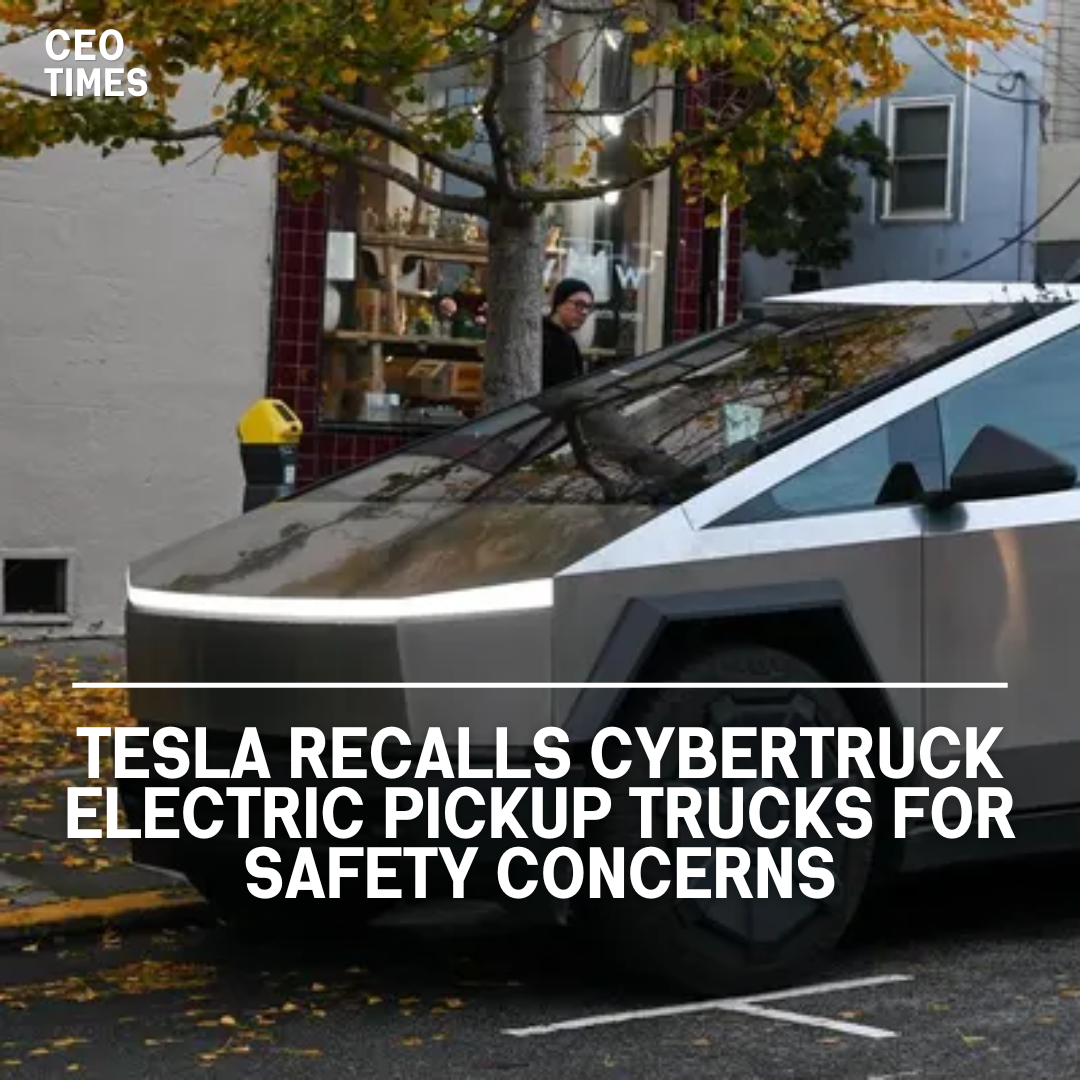Tesla recalls 11,688 Cybertruck electric pickup trucks due to a defect in the windshield wiper system, which could reduce visibility and increase the risk of a crash, according to the U.S. National Highway Traffic Safety Administration (NHTSA).
Additionally, 11,383 units are being recalled due to improperly attached trim in the trunk bed, which could become loose and create a road hazard for motorists behind the vehicle.
Previous Recalls and Production Challenges:
These recalls follow a recall in April, when nearly 4,000 Cybertrucks were recalled to fix an accelerator pedal pad that could come loose and lodge in the interior trim. These issues add to the challenges the vehicle has faced since its introduction.
Mass production of the Cybertruck is expected to start next year, but Tesla has yet to disclose the number of trucks delivered to consumers in its quarterly reports.
The Cybertruck, which started delivery in November 2023, has experienced delays and a difficult production ramp-up, which CEO Elon Musk described as Tesla digging its own “grave.”
Safety Concerns and Remedies:
The NHTSA highlighted that “excessive electrical current can cause the front windshield wiper motor controller to fail,” prompting the recall.
Tesla’s service team will address the issues by replacing the wiper motor, applying an adhesion promoter and pressure-sensitive tape, or replacing the missing trim, free of charge for the affected vehicles.
Recall Statistics and Resolution Methods:
In the first quarter of this year, Tesla had three recalls affecting about 2.4 million vehicles. This figure includes 2.2 million vehicles recalled in the United States due to the wrong font size on warning lights.
Although the latest issues cannot be fixed remotely, most Tesla recalls are usually resolved through over-the-air software updates, showcasing Tesla’s approach to handling such challenges efficiently.




















